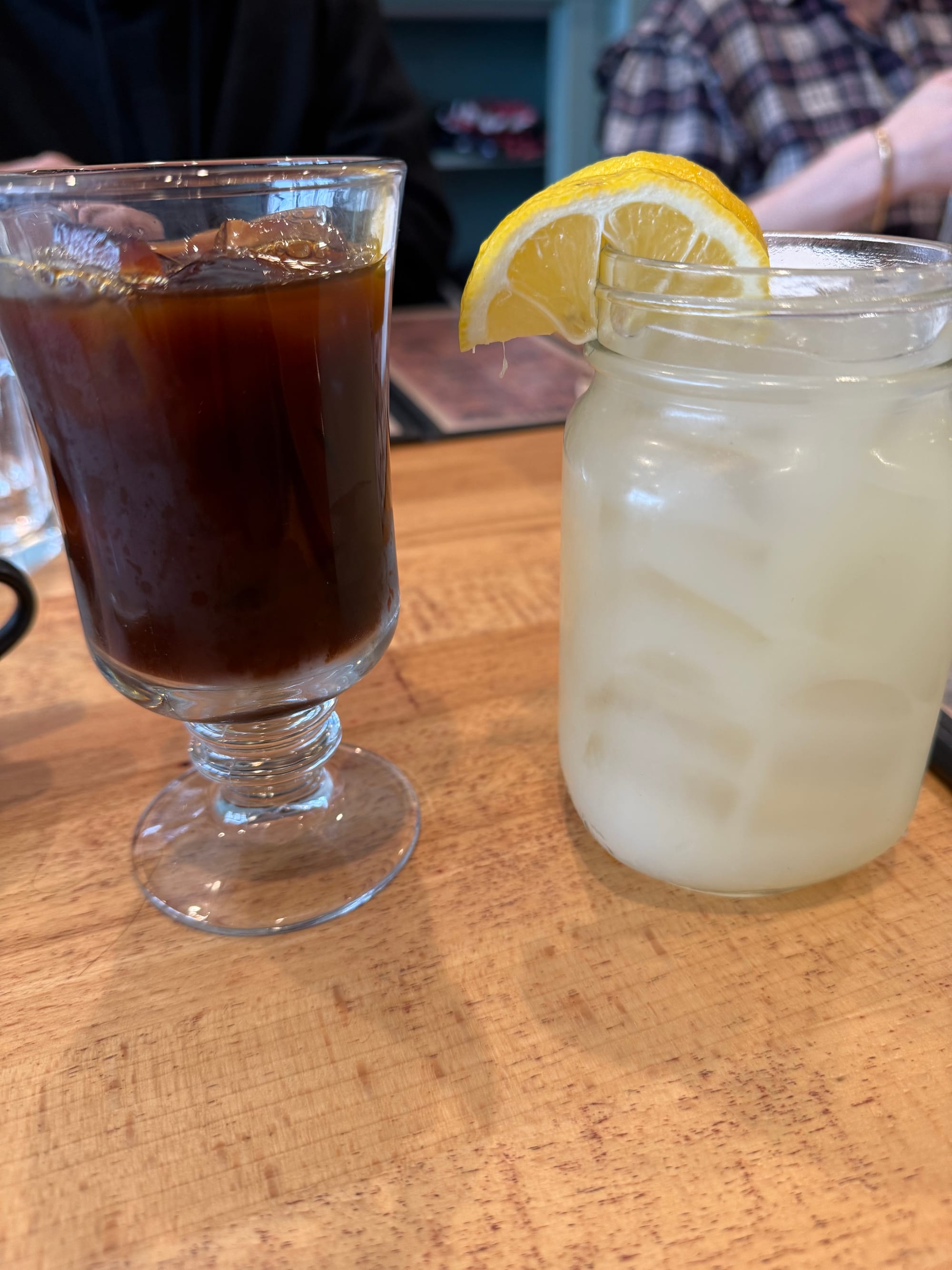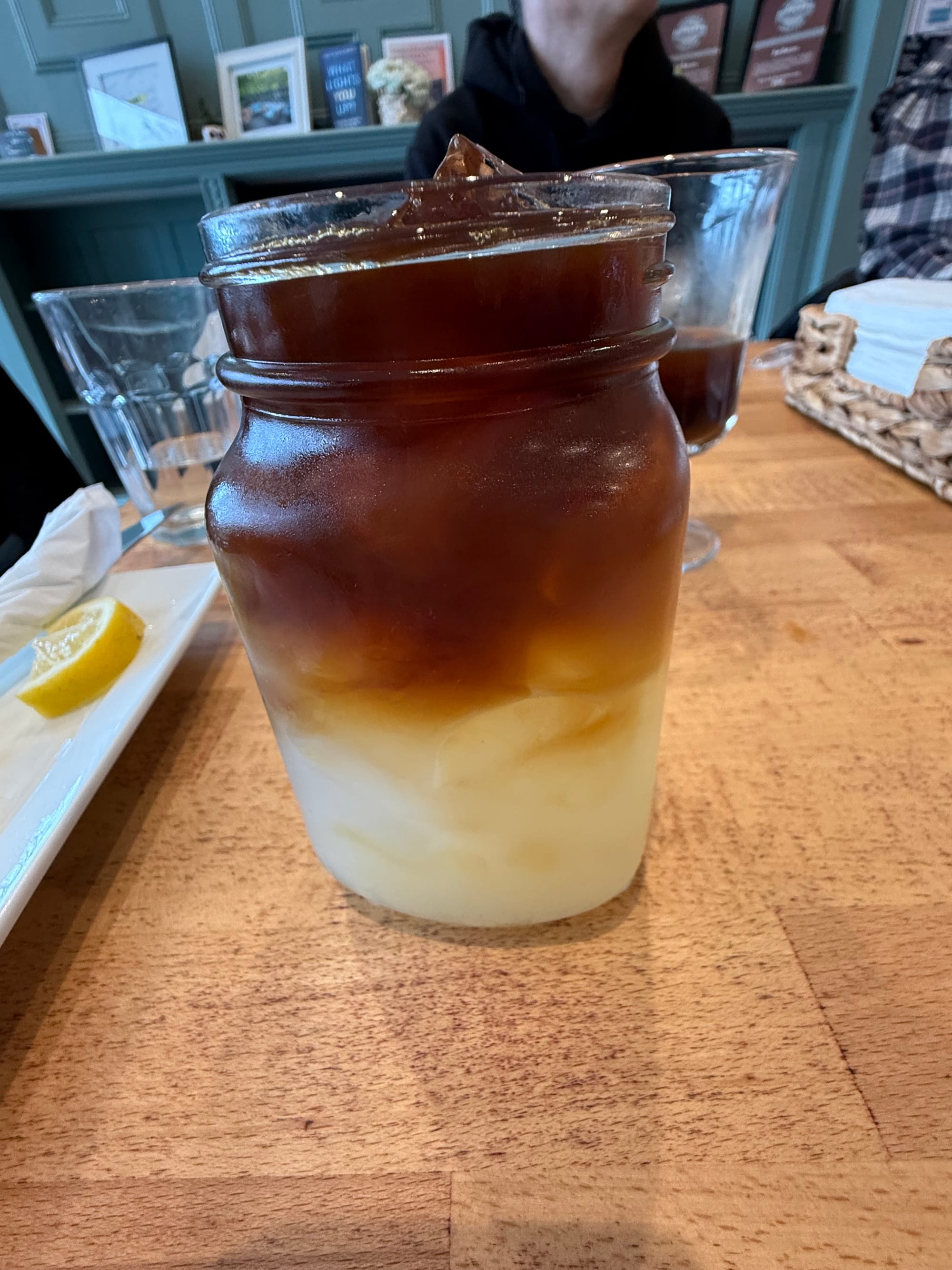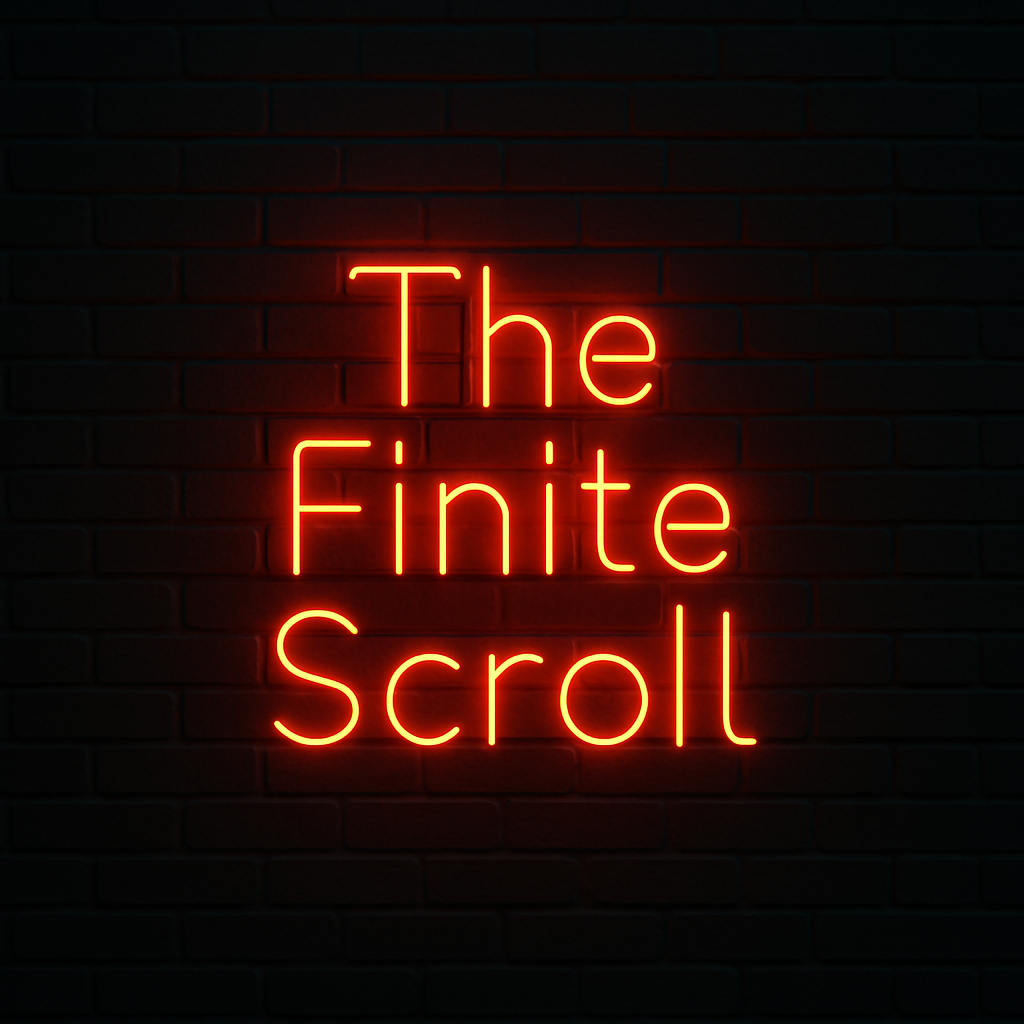The Finite Scroll 003: Creating space for ideas, a fantastic co-op video game, WTF is happening with college kids and torpedo bats.

Welcome to The Finite Scroll - a weekly-ish newsletter for curious people. It should take less than 5 minutes to read and give you something that piques your curiosity.
On creating space for ideas to happen
I’ve always been drawn to consuming information. As a result, I tend to fill any gaps in my day with something. Standing in line for 5 minutes? I open my phone and read. Going to the grocery store? I throw in my AirPods and chip away at a podcast. Hopping in the shower for 5 minutes? I bring a speaker. Few moments are too small to squeeze in a little information, insight, or entertainment. This behavior became second nature to me. It felt normal. It felt productive.
This compulsion partially stems from how I’m wired and has definitely been exacerbated by the busy working parent life. With little “free” time, consuming something interesting during those spare moments gives me a sense of control and makes me feel like I’m making the most of that limited time.
I recently reflected on whether this habit might be negatively impacting my sleep and anxiety. My first clue came from regularly waking up at night with racing thoughts about work, health, family, and often dumb stuff. I started to think that by not giving those thoughts room to breathe during the day, I was inadvertently creating a mental backlog that would surface - usually at 4 AM.
A few weeks ago, I began an experiment. I decided to deliberately not fill every free moment with something. Instead, I’d let more of them breathe with emptiness. My morning hourlong dog walks—previously prime podcast time—became headphone-free zones. I’d just walk and let my mind wander; thoughts, observations, and ideas could bounce around freely.
I was surprised at how strong my initial resistance to doing this was — I felt like I was wasting this time. This hour could be spent learning something new or catching up on a favorite show. The visceral feeling of "missing out" was stronger than I'd anticipated. The difficulty in not reaching for my headphones highlighted how automatic this behavior had become.
After forcing myself to try it a few times, I’m happy to report that it has become easier. It's also allowed me to become more aware of when my mind wants to wander - racing with its own thoughts or ideas that demand attention. I now turn off whatever I’m doing and continue in silence, letting those ideas flow and take shape.
It’s still early in the experiment, but the benefits have been subtle yet meaningful. My thoughts are less fragmented. I am more observant of my surroundings. I can see how ideas connect in ways they couldn’t when they were always interrupted by new inputs. Connections form between concepts that were previously compartmentalized and solutions emerge when I’m not actively seeking them. I still wake up at 4AM more than I like to, but I often can fall back to sleep quickly.
Of course, there's a downside. My podcast queue grows longer, and I feel FOMO about the content I'm behind on. I'm trying to let go of my completionist mindset and appreciate the value of having this mental processing time.
Follow up: espresso + lemonade = delicious?
Last week I mentioned a drink I'd read about called the Thunderbolt that really piqued my interest.
Pour lemonade into a glass over ice before topping with a double shot of chilled espresso. Mix, if you're into that kind of thing."
Not soon after hitting send on last week's newsletter did I find myself at brunch with friends in a position to make my dreams come true.


I ordered the two drinks and mixed my own Thunderbolt at the table and I can report that it was... pretty bitter (the lemonade in question was not sweet at all) and therefore not for everyone but I enjoyed it and would definitely get it again in the summertime as I found it to be both refreshing and zippy!
Things I’m into this week
Over the past month I've been playing Split Fiction with our 11 year old son and it's been a total blast. The game is unique as it's co-op only - i.e. you have to play with someone else, and work together, to get through the game. It weaves various game genres and mechanics together incredibly well and the creative direction is wildly whimsical and exceptionally well executed. At a time when so many games are shifting to online play, a game that depends on communicating and collaborating with someone right next to you is a real breadth of fresh air.
"Always go to the funeral" means that I have to do the right thing when I really, really don't feel like it. I have to remind myself of it when I could make some small gesture, but I don't really have to and I definitely don't want to. I'm talking about those things that represent only inconvenience to me, but the world to the other guy. You know, the painfully under-attended birthday party. The hospital visit during happy hour. The Shiva call for one of my ex's uncles. In my humdrum life, the daily battle hasn't been good versus evil. It's hardly so epic. Most days, my real battle is doing good versus doing nothing.
Loved this quote from Deirdre Sullivan's piece "Always Go To The Funeral" on All Things Considered.
The average student has seen college as basically transactional for as long as I’ve been doing this. They go through the motions and maybe learn something along the way, but it is all in service to the only conception of the good life they can imagine: a job with middle-class wages. I’ve mostly made my peace with that, do my best to give them a taste of the life of the mind, and celebrate the successes.
Things have changed. Ted Gioia describes modern students as checked-out, phone-addicted zombies. Troy Jollimore writes, “I once believed my students and I were in this together, engaged in a shared intellectual pursuit. That faith has been obliterated over the past few semesters.”
I can't stop thinking about this piece from a college professor of 30 years reflecting on how students' engagement and abilities in the basics of reading, writing and math have so meaningfully degraded.
I also have no patience for those who try and make the case that the proliferation of cell phones and social media aren't the leading contributor to this clear and alarming problem. This was a good recent conversation on this topic between Jonathan Haidt (author of The Anxious Generation) and Ezra Klein: "Our Kids Are the Least Flourishing Generation We Know Of"

The Torpedo bat, with its distinctive bowling pin-like design, proves that even products with 100 years of history can be revolutionized through a precise combination of data, design, and scientific analysis. It also illustrates that established order is often transformed by outsiders who aren’t bound by traditional thinking. Just as Apple revolutionized mobile phones in 2007 by abandoning physical keyboards, Leanhardt’s physics-based approach challenged baseball’s century-old assumptions about bat design.
Enjoyed this brief deep dive from Om Malik into the new oddly shaped "Torpedo Bat" the Yankees have been using to crank dingahs in the early days of this new baseball season.
That's all for this week. Thanks for reading. If you want each new edition in your inbox, you can subscribe below or follow right from your favorite RSS reader.
Next week we'll be on Spring Break with the kids so not sure if I'll get an issue out but I'm going to try. Have a great week!





Discussion